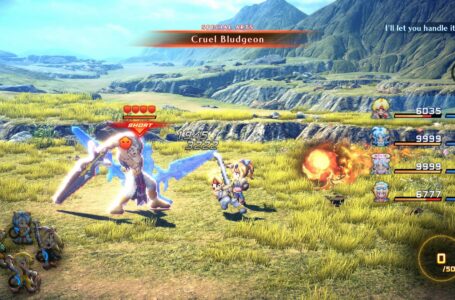A closer look at Stranger of Paradise: Final Fantasy Origin’s combat mechanics
Stranger of Paradise: Final Fantasy Origin is not, as we’ve previously discussed, “Final Fantasy Souls”. It is very much its own distinct thing — and a game that really lets its mechanical core shine the longer you play it for. So today, we’re going to take a more in-depth look at exactly how this game plays, and why it should definitely be on your radar.
At its core, Stranger of Paradise’s mechanics features a blend of different elements. There’s the importance on gradually improving your equipment and overall power level found in dungeon crawlers; there’s the loot-heavy aspect of games in the Diablo mould; there’s the level-based structure of action games; and there’s just a touch of the resource management found in Souls games — though, as noted, not enough to make Stranger of Paradise an outright Soulslike.
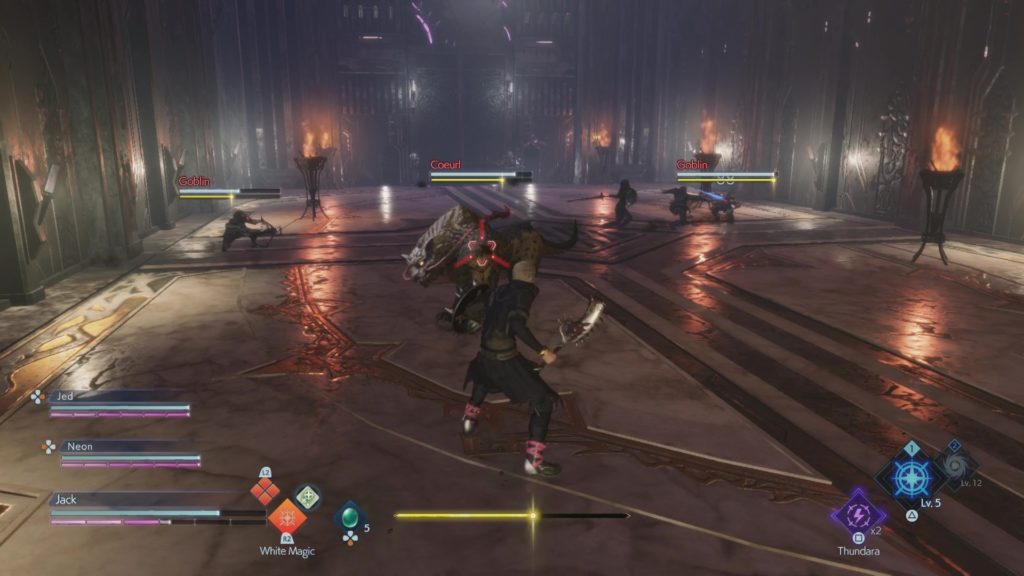
In some ways, Stranger of Paradise can be likened to a primarily single-player take on Final Fantasy XIV’s dungeons: progression through them is mostly linear, involves battling through a series of preset enemy encounters and reaching crucial checkpoints, and eventually concludes in a mechanics-heavy boss fight. Once you clear a dungeon, you can either play it again repeatedly to acquire more of its loot, or you can move on to tougher challenges.
There are also side missions on offer that tend to provide a slightly different perspective on the dungeon, typically focusing on an individual part of the complete dungeon and requiring you to accomplish a simple objective such as finding an item, defeating a powerful enemy or locating and destroying a set number of specific enemies.
Once into a dungeon in Stranger of Paradise, you’ll notice a few things. One of the most interesting of these is the fact that the game has no form of map whatsoever — no minimap, no “big map”, nothing; instead, you’re expected to actually pay attention to the environment you’re in, look around and find the critical path onwards for yourself. This generally isn’t particularly difficult to do, but it provides the game with a nice feeling of trusting the player; at no point does Stranger of Paradise insult the player’s intelligence.
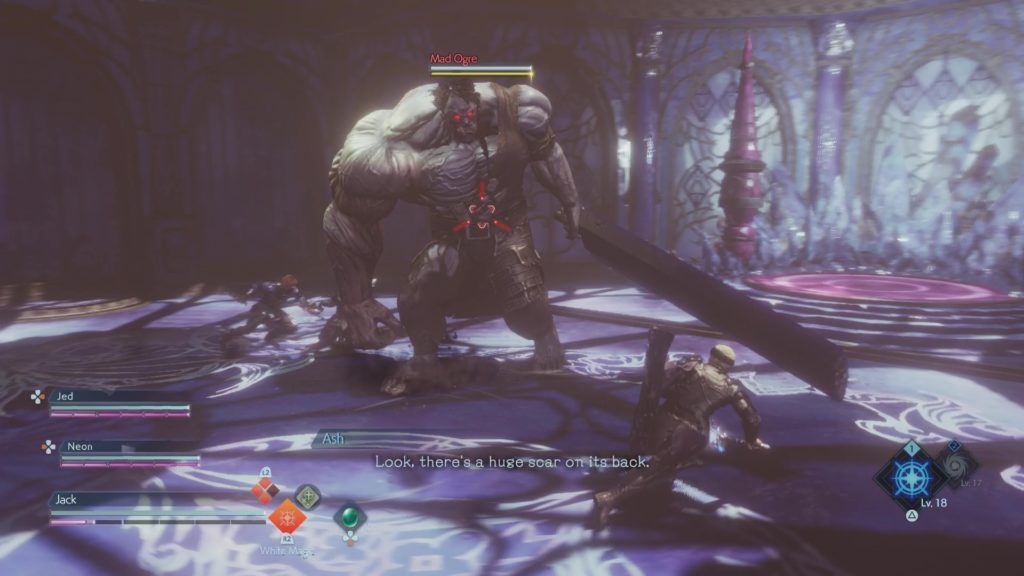
As you proceed through Stranger of Paradise’s dungeons, you’ll encounter enemies in set locations, and in most instances it’s not possible to sneak past them or charge through — you’ll need to defeat them in order to proceed. To make things a little trickier, these enemies respawn either when you make use of the “cubes” found throughout the dungeons — these act as checkpoints, places to get a full heal and opportunities to improve your character — or when you get knocked out and sent back to the last cubes you found.
There are exceptions to this; certain powerful enemies will only show up once during a dungeon run even if you use a set of cubes or have to respawn. For the most part, though, you can safely assume that if you’ve either died or hit a checkpoint and you need to return to a previously visited area, all the enemies will be back waiting for you.
This could easily become annoying, so Stranger of Paradise’s dungeons are chock-full of shortcuts, usually in the form of doors that only open from one side, ropes and ladders that can be dropped down from ledges and other such devices that require you to progress through the stage a certain amount before being able to use them. For the most part, you’ll find yourself constantly progressing forward; it’s pretty rare you’ll need to actually backtrack, and if you do, there are usually shortcuts around groups of enemies you’ve previously laid the smack down on.
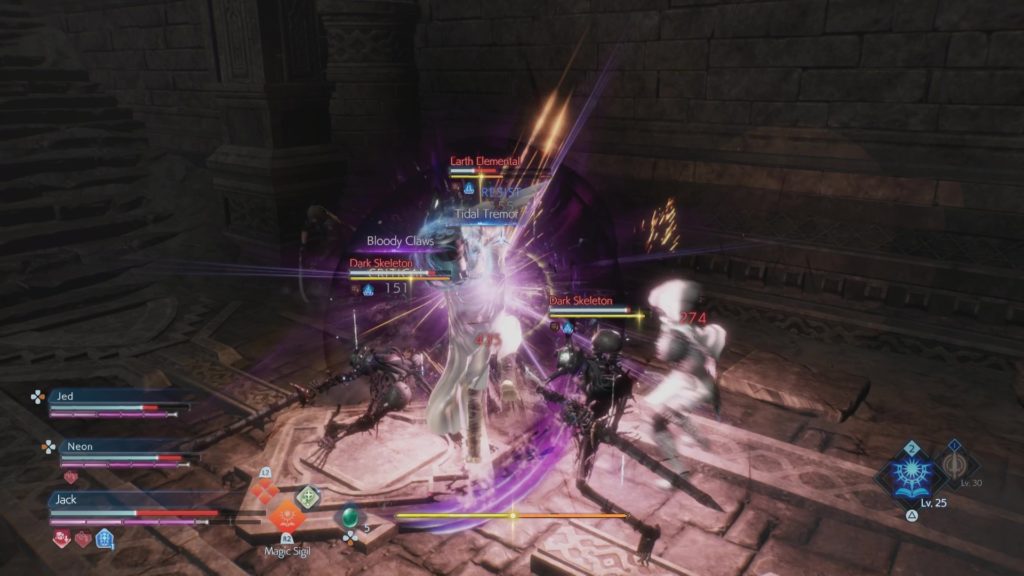
So let’s talk a little about combat, since that’s the core of Stranger of Paradise’s gameplay. The basics are actually quite simple, but where the game really shines is in the little variations on the basic formula added by the different jobs, weapons and abilities you’re able to unlock as you progress through the game.
Each weapon type has a three-hit combo that can be unleashed by tapping the R1 button repeatedly. A crucial, defining difference between Stranger of Paradise and your typical Soulslike is that Stranger of Paradise does not feature stamina management, meaning you can use your normal attacks as much as you like. They’re quite a bit “heavier” than in your average character action game — but there’s definitely no waiting for a breather between combos.
The range and reach of the attack varies quite considerably by weapon, so a big part of determining your favourite way of fighting will be familiarising yourself with how close you need to be to a foe to land a hit. Maces, for example, which tend to be favoured by caster types, require you to get right up in an enemy’s face, making for a strong degree of risk versus reward; swords and spears, meanwhile, allow you to step back a bit and keep enemies at something of a distance.
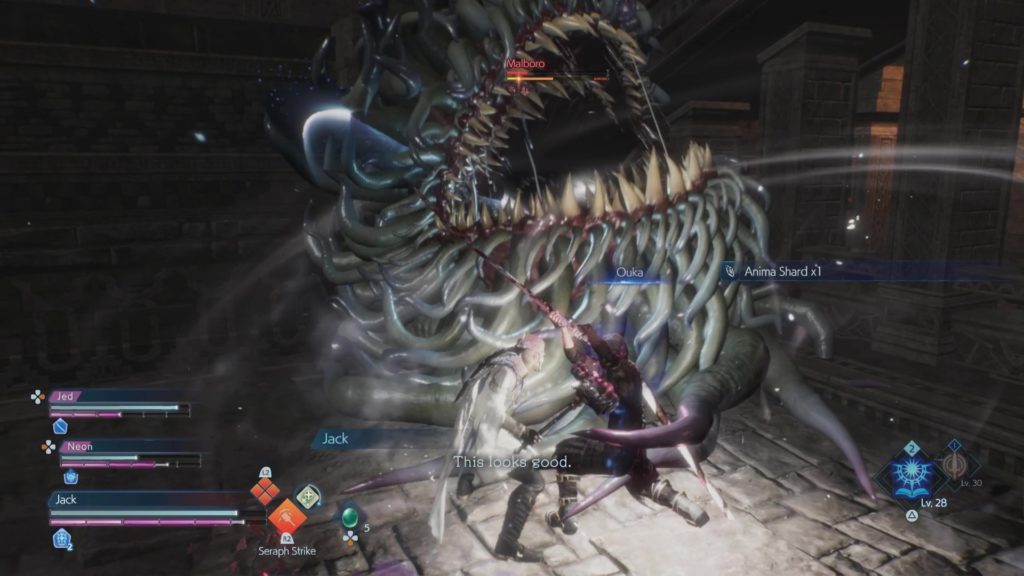
And regardless of the job you’ve chosen for Stranger of Paradise protagonist Jack, you’ll need to get up close and personal quite often, because hitting enemies with basic attacks is the main means through which you generate Magic Points. And without those precious MP, you won’t be able to make use of any of the fancy abilities you unlock on your journey through the game.
MP can be used in several ways. Firstly, Combo abilities allow you to hit R2 after one, two or three R1 hits to unleash various weapon-specific special attacks. These often have an elemental affinity and generally hit quite a bit harder than regular attacks. In most circumstances, these will form the backbone of your overall combat strategy — more on that in a moment.
Secondly, Command abilities allow you to assign up to three cross-job abilities to the button combo of L2 and the face buttons on the controller. One of these, known as Lightbringer, is fixed in place and has a specific function, but the other three can be customised according to those which you’ve unlocked. Command abilities include both forms of direct attack — the ranged Ruin spell is a good example — as well as buffs to your attack and/or defensive capabilities.
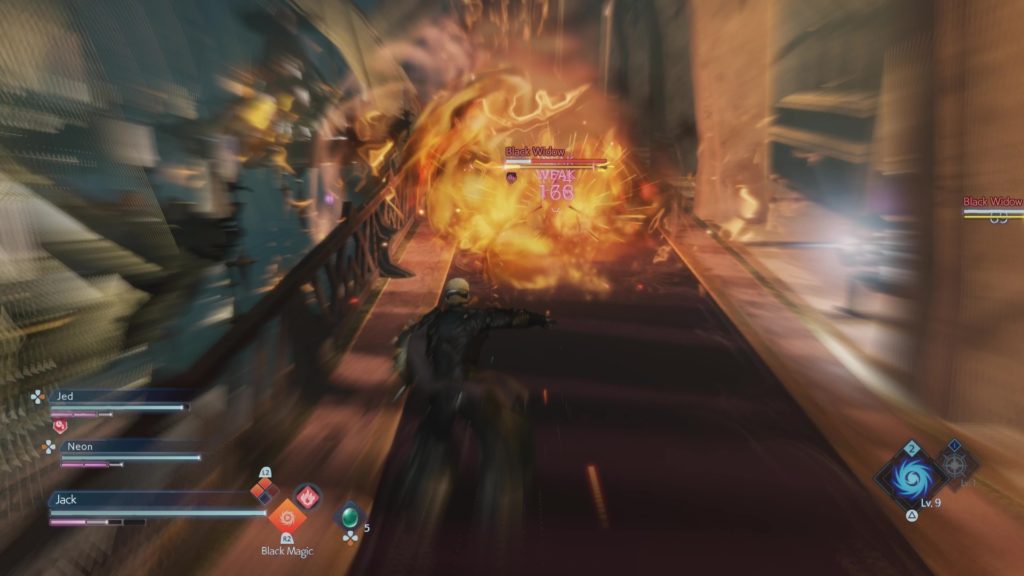
Thirdly, casters can tap or hold down R2 to cast spells. Tapping it simply casts the last used spell at its minimum power level; in the case of the Red Mage job, their Chainspell ability allows them to effectively “rapid fire” spells out in this way while their MP lasts. Holding it, meanwhile, brings up a radial menu that allows you to select which spell you’d like to cast by tilting the joystick, and the longer you hold the button, the more powerful the spell will be.
Finally, every job has its own unique job action which is used by pressing R2 by itself — technically spellcasting for caster classes is their job action, but it functions differently enough from others to be considered its own distinct thing.
Job actions vary enormously from class to class. The Swordfighter class, for example, allows you to automatically counter incoming attacks, while the Paladin class allows you to infuse yourself with a buff that restores your HP with every successfully landed attack. The greatsword-wielding Swordsman class has a powerful spinning slash that you can continue to use for as long as you have MP, and Dark Knight has its traditional functionality of sacrificing HP in order to power attacks and buffs. There’s a lot of classic Final Fantasy abilities in the job actions, all implemented well within the context of an action game like this.
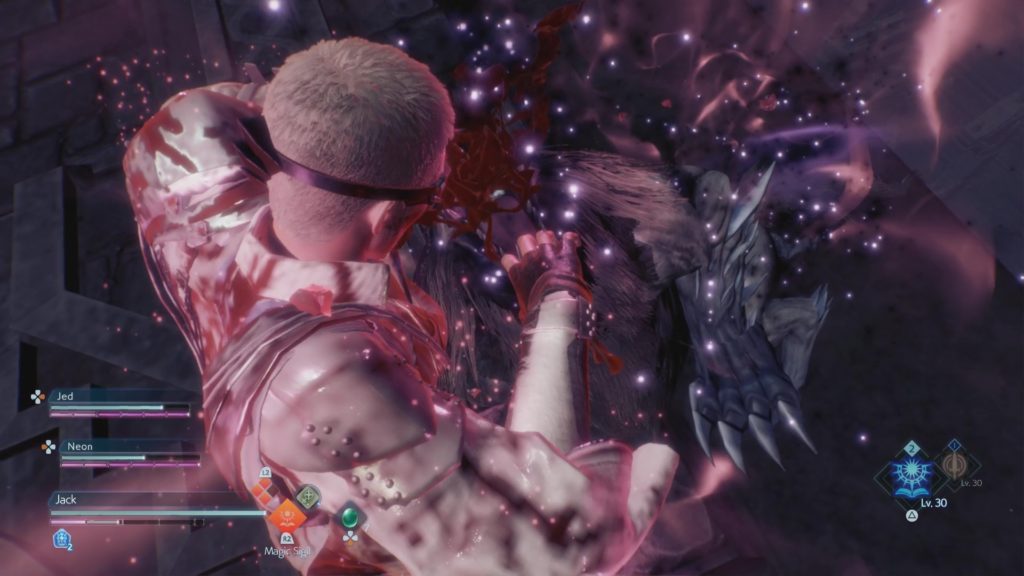
At heart, you have one main goal in combat: to “break” your enemies. You can defeat them by depleting their HP, yes, but in most cases it’s a lot more efficient to break them instead. This is achieved by depleting a separate meter from their HP, with combo skills and magic having a particularly strong effect on it and, in many cases, actually reducing the maximum value of the meter.
Completely deplete a break meter and the enemy is temporarily helpless, leaving them open to an instant-kill Soul Break manoeuvre; this causes a blast that damages the break meters of any nearby enemies, can cause chain reactions and, perhaps most importantly, both restores your MP and increases the maximum possible value of your MP meter.
You can even Soul Break bosses, though this works a little differently; rather than instantly killing them in most cases, a Soul Break marks a phase transition, after which the boss’ attack patterns will change up somewhat, usually due to Jack having broken off at least one of their appendages in an entertainingly violent manner.
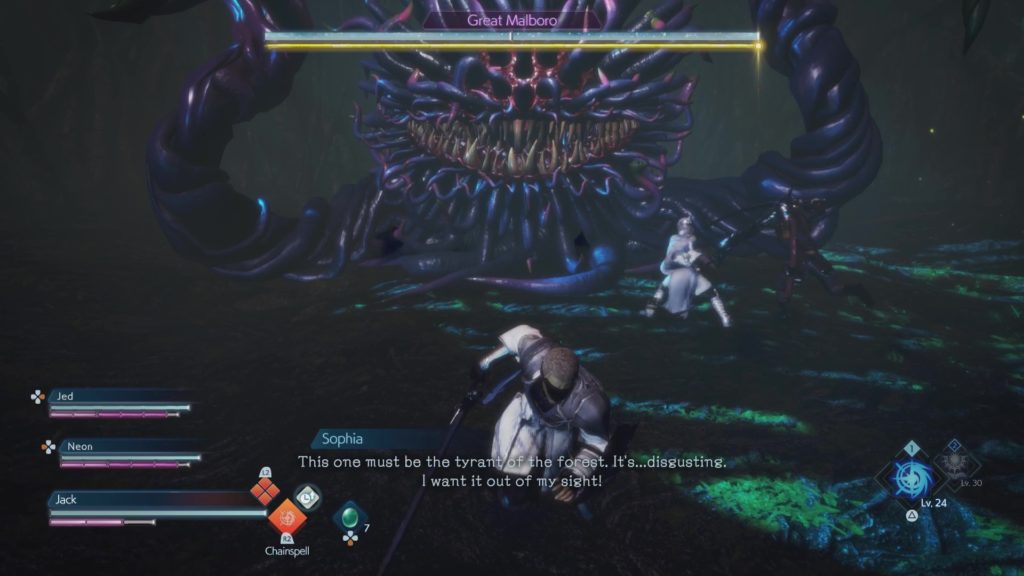
Extending your MP meter through Soul Break is of critical importance, because without doing this you are quite limited in what abilities you’re able to use before you need to “recharge” through melee attacks. Even at full capacity, you still need to manage your MP quite carefully — so deliberately limiting yourself isn’t doing you any favours.
Thankfully, Soul Breaks aren’t the only means of extending your MP meter and recovering MP; you also have access to an ability called Soul Shield. By holding down the circle button, you emit a sinister red light that will block all but specifically marked “unblockable” attacks, restoring MP and extending your MP meter slightly in the process.
This can be risky, though; to power Soul Shield, you have to use your own break meter. And while being broken doesn’t leave you open to instant kills in the same way enemies are, it still leaves you extremely vulnerable — so Soul Shield is best saved for when there’s an attack coming right at you, you know it’s going to hit, and you could do with some MP.
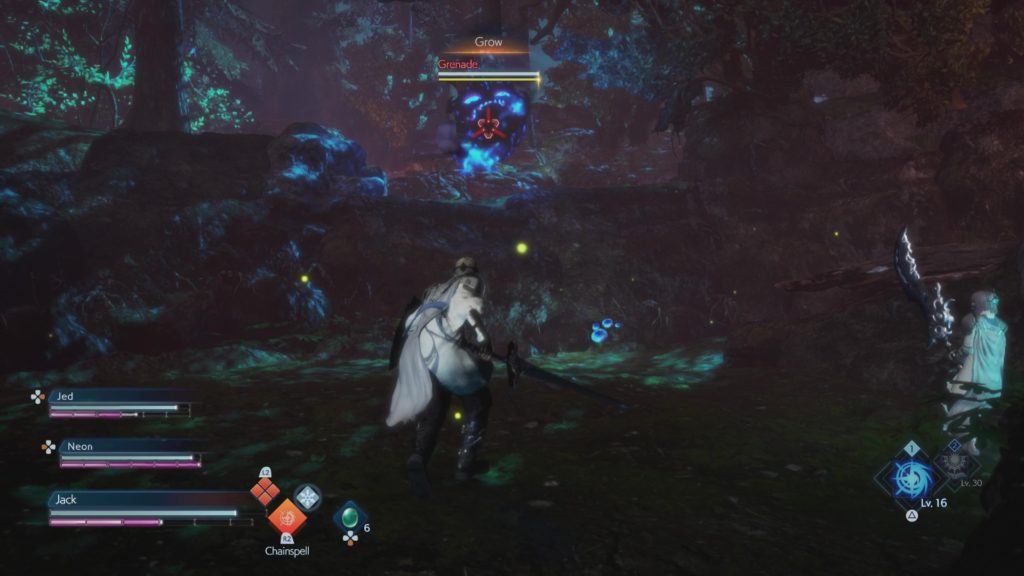
At other times, you can simply use a regular block, which will nullify most physical-only damage and considerably reduce (though not eliminate) magic damage. This also reduces your break meter, but only when you actually get hit; as such, if you’re uneasy about what an enemy is going to do, you can quite easily hold a defensive stance until you’ve got a feel for their rhythm and animation cues.
There’s a connection between the two, also; the MP restored by Soul Shield corresponds to how much damage an attack does to your break meter if you either take it on the chin or block it. Consequently, powerful physical attacks will restore a ton of MP — but are risky to Soul Shield against — while attacks that simply deal chip damage are probably better to just avoid outright.
Soul Shield has a secondary function, too, which is to absorb certain enemy skills. Any time an enemy makes use of a skill with a purple nameplate, it means that blocking it with Soul Shield allows you to reflect it right back at them. This is sometimes more useful than others; hurling a lightning spell back at a lightning-aspected enemy isn’t going to do much, for example, while absorbing a non-elemental Flare attack for a massive MP gain and a guaranteed big hit on a boss not only makes you feel like a badass, it actually makes up a core part of that fight’s mechanics.
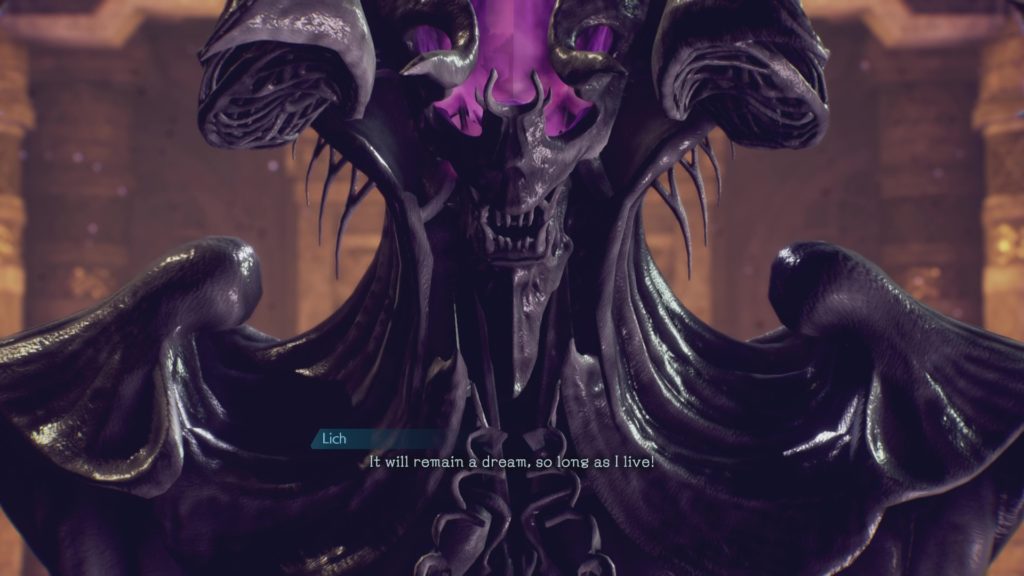
In fact, let’s take a case study of a specific boss fight from Stranger of Paradise to see how this all ties together. Lich, who dwells at the bottom of the Cavern of Earth, challenges you to a two-phase boss fight, during which you’ll have to contend with a variety of different mechanics if you want to survive. Actually damaging Lich can be quite challenging, so he’s best handled with a caster job — but casters still need MP to throw out those spells.
In Lich’s first phase, he picks from several different abilities according to your relative positions. One of his most commonly used is to summon a row of fiery orbs that explode a moment later, immediately followed by a shower of icicles that aim directly at your position. It’s easy to avoid the fire orbs by simply not standing near them, but the icicles are a little trickier. With careful timing, you can dodge-roll to avoid them, or you can Soul Shield them for a small increase to both current and maximum MP. Because this is a quick attack, though, this is not a good time to try and attack Lich.
Every so often, Lich will pause and summon some Dark Skeletons. While doing this, he will “explode” with dark energy, knocking you back if you’re too close. Thus, when you see him casting this, it’s an ideal opportunity to charge up either an Aero or Dia spell (both of which he’s weak to) and let one fly while he’s doing the summoning. Before you can get a second one off, though, he’ll likely vanish for a moment, only to reappear elsewhere in the arena and begin casting an Earthquake spell.
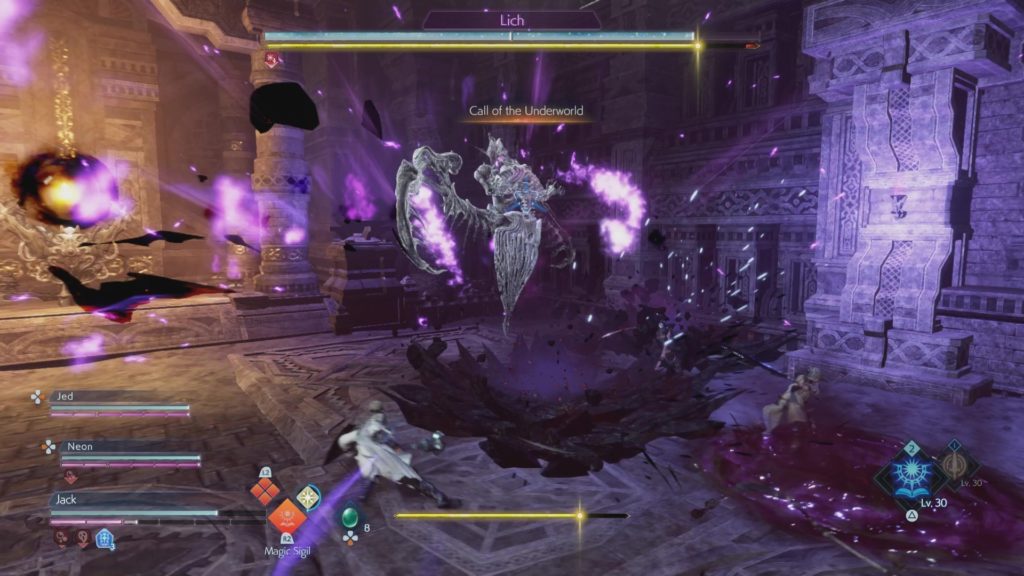
Earthquake takes a while to cast, so this is an ideal opportunity to charge Lich and hit him with some normal attacks to charge up your MP, then dodge-roll frantically out of the three eruptions caused by the Earthquake spell when he finishes casting.
For the most part, you can ignore the Dark Skeletons, since your two companions are more than capable of finishing them off and will generally prioritise them over Lich. You do need to be careful, though; each killed Dark Skeleton makes Lich more likely to cast Flare — but as previously noted, you can completely absorb Flare’s immense damage with a Soul Shield, restore your MP considerably in the process and then reflect the spell right back at him, just to add insult to injury.
At this point, you just need to find more good opportunities to pelt him with Dia or Aero while avoiding his unblockable Bindna attack until you get him down to 50% HP, at which point you can Soul Break him for the first time.
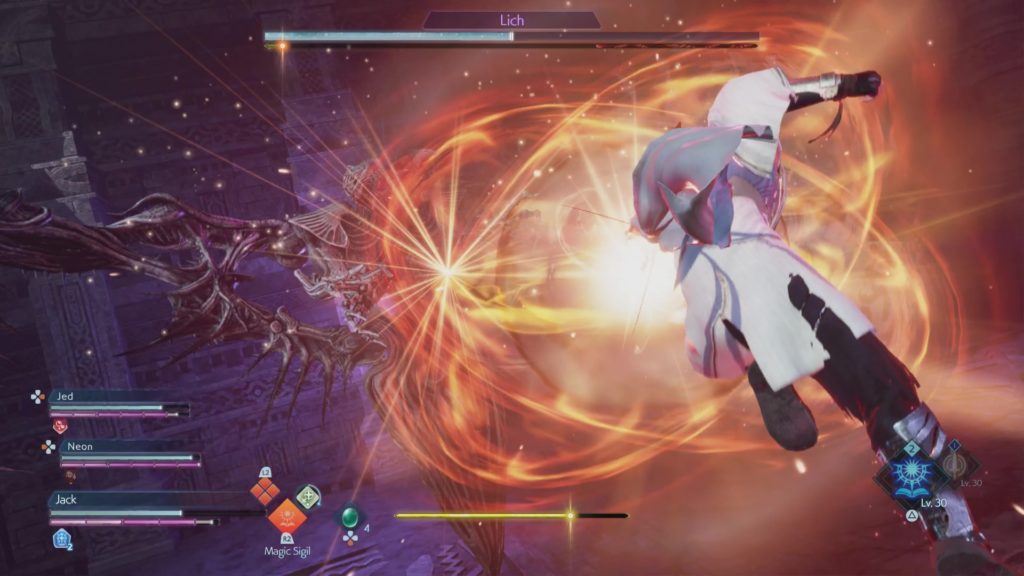
After this, Lich’s attack patterns change considerably. You’ve broken off his arms, so he can’t cast magic any more. As such, he switches to a more physical approach, using his bony, blade-like “wings” to aim wide, powerful slash combos at you. You could simply block all three or four of these (the number he does can be predicted by the pace of his animations) — but doing so is a sure-fire way to find yourself broken and defenseless. Instead, dodging backwards out of range of the first two or three strikes then Soul Shielding the final one not only protects you from damage, it also gives you a huge chunk of MP to use.
Like in the first phase, Lich regularly summons Dark Skeletons, and once again this is a great time to pelt him with spells. The difference this time is that while summoning, he surrounds himself with a putrid liquid that gradually accumulates Poison and Curse status effects on you, so getting out of that should be a priority before firing off any magic. He also disappears quite frequently — though at this point, his reappearance is marked with a devastating unblockable attack that you need to avoid rather than a lengthy Earthquake cast.
From here, Lich’s mechanics simply repeat, so all you need to do is pay attention to the cues and respond accordingly. While unfolding at a considerably more rapid pace than Final Fantasy XIV’s multiplayer combat, there’s definitely a lot in common here in terms of spotting patterns and understanding what to do when you see certain visual cues.
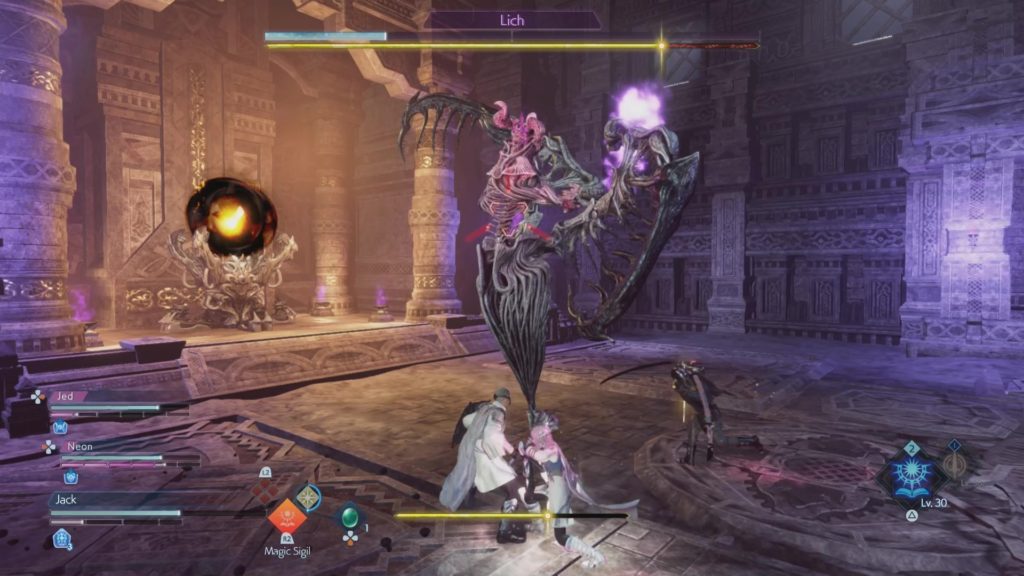
And this is just one fight in the game. Bear in mind that many of the “trash” enemies in the game also have surprisingly elaborate mechanics to them — and many encounters are made challenging through the combinations of enemies you’ll find yourself having to fend off at once — and it should be pretty clear that Stranger of Paradise’s combat is both much more than simple hack-and-slash, and markedly different from your average “Soulsborne”.
Stranger of Paradise: Final Fantasy Origin is out now for PlayStation 4 and PlayStation 5, Xbox and Windows PC via Epic Games Store. There are also physical PS4 and PS5 versions with the PS4 edition offering a free upgrade to a digital PS5 copy on disc-based models.
Join The Discussion
Rice Digital Discord
Rice Digital Twitter
Rice Digital Facebook
Or write us a letter for the Rice Digital Friday Letters Page by clicking here!
Disclosure: Some links in this article may be affiliate links, which means we may earn a small commission if you make a purchase after clicking on them. This is at no additional cost to you and helps support Rice Digital!
- Letter from the Editor: passing the torch - June 30, 2023
- Super Woden GP 2 is looking promising - June 30, 2023
- Inti Creates is making a 32 bit-style Love Live action platformer - June 26, 2023







